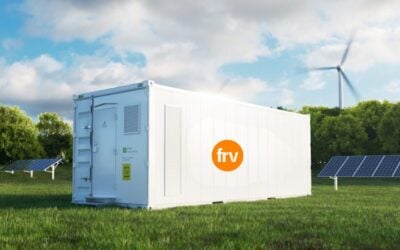The cost of Lithium-ion battery pack prices has fallen close to 90%, and rates lower than US$100/kWh have been reported for the first time.
That’s according to new research from BloombergNEF, which claims average prices will be close to US$100/kWh by 2023.
BloombergNEF’s Battery Price Survey predicts that pack prices for stationary storage and electric vehicles (EVs) will fall to $101/kWh within three years. Average pack prices have sat at around $137/kWh this year, 89% lower than in 2010 and nearly a fifth of their cost seven years ago.
This, the report said, has come as a result of rising order sizes and BEV sales growth, which has led battery manufacturers to benefit from economies of scale. The cost of cathode materials has also fallen substantially since the start of 2018, providing developers with more favourable profit margins.
Try Premium for just $1
- Full premium access for the first month at only $1
- Converts to an annual rate after 30 days unless cancelled
- Cancel anytime during the trial period
Premium Benefits
- Expert industry analysis and interviews
- Digital access to PV Tech Power journal
- Exclusive event discounts
Or get the full Premium subscription right away
Or continue reading this article for free
BloombergNEF’s prediction is broadly in line with other estimates. Guidehouse Insights claims that battery pack costs could fall to $66.6/kWh by the end of the decade.
The current price in the Bloomberg report represents a 74:26 split between the average cell and pack, according to James Frith, BloombergNEF’s head of energy storage research and a lead author of the report. The pack price itself could further dimmish “as more BEV specific platforms are introduced,” Frith added.
The research group reported lower than US$100/kWh on pack prices for e-buses in China, but Frith said that we will see the average price across the battery storage industry “pass this point” in a few years.
Frith added that, if the cost of raw materials rebounded and returned to their 2018 highs, this would “would only delay” the decline of pack prices.
“The industry is becoming increasingly resilient to changing raw material prices,” he said, “with leading battery manufacturers moving up on the value chain and investing in cathode production or even mines.”
The report expects average prices to fall as far as US$58/kWh within the next 10 years, although admits there is “much less certainty” on how this could be attained. It argued that structured supply chains for new materials not currently used in lithium-ion batteries but that could bring down the cost of production, such as solid electrolytes, “need to be established”.
Our publisher, Solar Media, is once again hosting the annual Energy Storage Summit, in a new format on 23-24 February and 3-4 March 2021. See the website for more details.





